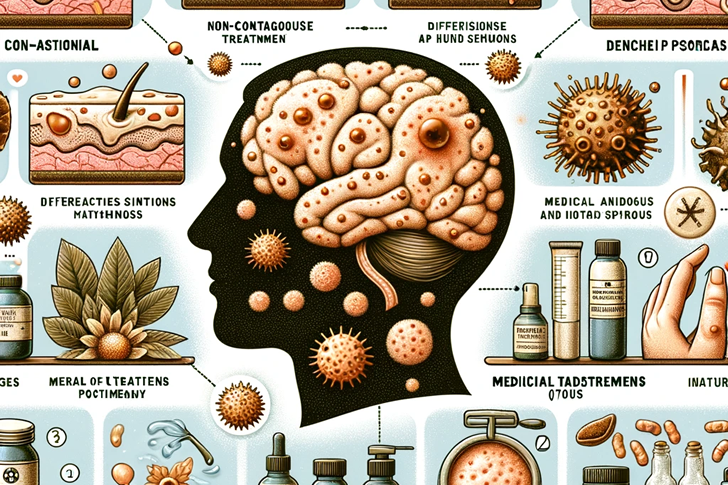A Closer Look At Scalp Psoriasis And How To Treat It
Scalp psoriasis is a common skin disorder that causes raised, reddish, and often scaly patches on the scalp. What does psoriasis look like when it first starts? We’ve carried out detailed research to find the answer.

Understanding Scalp Psoriasis
Scalp psoriasis is a chronic autoimmune condition characterized by the rapid build-up of skin cells. This build-up leads to scaling on the scalp that appears as silvery-white plaques, which can be itchy and sometimes painful. According to the National Psoriasis Foundation, scalp psoriasis affects at least half of all individuals diagnosed with psoriasis, making it one of the most common manifestations of the disease.
Causes of Scalp Psoriasis
The exact cause of scalp psoriasis is not fully understood, but it is known to involve an immune system malfunction that speeds up skin cell growth. Factors that may trigger scalp psoriasis include:
- Genetic predisposition: A family history of psoriasis increases the likelihood of developing the condition.
- Stress: High stress levels can trigger or exacerbate psoriasis flare-ups.
- Weather: Cold, dry weather can worsen indicators, whereas sunny, warm weather may improve them.
- Medications: Certain medications, including lithium and beta-blockers, have been linked to triggering psoriasis.
Indicators of Scalp Psoriasis
Indicators can vary from mild to severe and include:
- Red patches of skin covered with thick, silvery scales.
- Dandruff-like flaking and dry scalp.
- Itching or soreness around patches.
- Hair loss, which is usually temporary and caused by scratching or the removal of scales.
Treating Scalp Psoriasis
While there is no cure for scalp psoriasis, treatments are available that can reduce or even temporarily clear the indicators:
- Topical Treatments: Medicated shampoos containing coal tar, salicylic acid, or corticosteroids can help loosen and remove scales, reduce swelling, and curb rapid skin cell growth.
- Phototherapy: Controlled exposure to ultraviolet light can effectively slow skin cell turnover and reduce scaling and inflammation.
- Systemic Medications: In cases where scalp psoriasis is severe and resistant to topical treatments, doctors may prescribe oral or injected medications that work throughout the body.
- Biologics: These are advanced medications that specifically target immune system components responsible for inflammation in psoriasis. Biologics are typically prescribed for moderate to severe scalp psoriasis.
- Lifestyle Adjustments: Diet changes, stress management, and regular moisturizing can also help manage indicators.
Tips for Management
Managing scalp psoriasis effectively involves more than just treatment—it requires a holistic approach:
- Regular Shampooing: Using medicated shampoos regularly can help manage indicators.
- Avoid Harsh Treatments: Chemical treatments, such as hair dye and perms, can irritate the scalp and should be used with caution.
- Gentle Hair Care: Avoid scratching the scalp. Use a soft brush and comb gently to prevent hair breakage and aggravation of the scalp.







Recent Comments